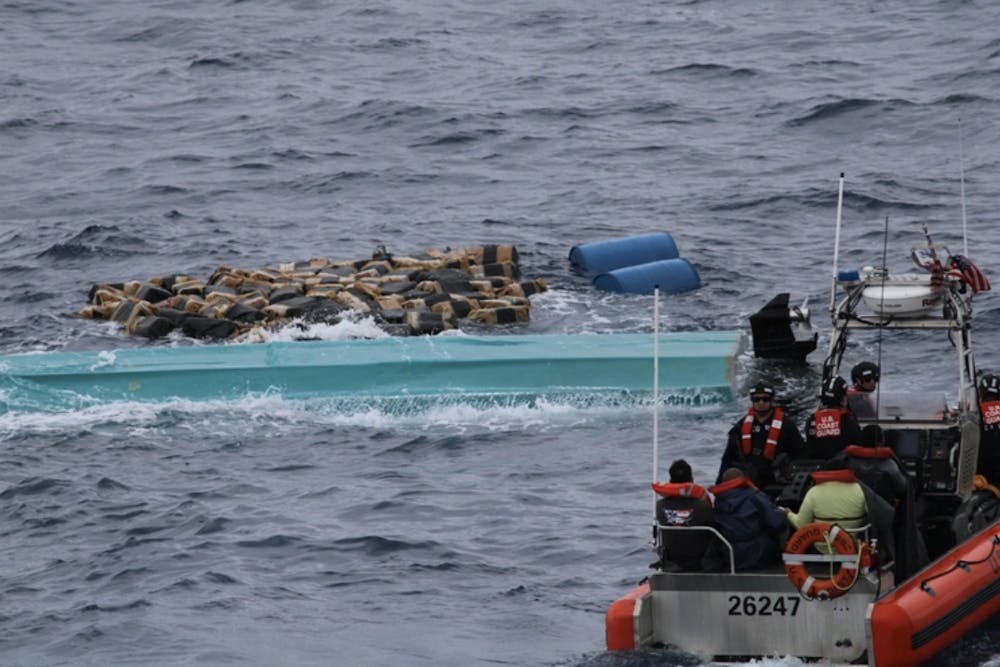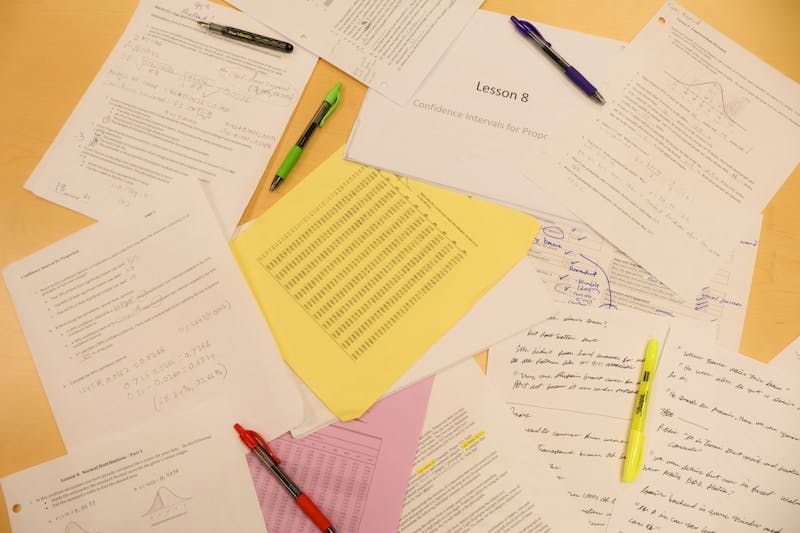Currently in the Caribbean Sea off the coast of Venezuela, there are at least eight U.S. warships, a submarine and approximately 4,000 marines and sailors, according to The Council on Foreign Relations.
These assets in the region were mobilized in August and September. The White House explained its actions as methods to counter drug trafficking operations within the area, with many of these drug traffickers being newly sanctioned as terrorist organizations by the White House.
In early September, the U.S. conducted a kinetic strike against a boat carrying “Narcoterrorists,” according to a Truth Social post by President Donald Trump. Following the strike, the U.S. deployed F-35 fighter jets to Puerto Rico with the stated intention of further aiding U.S. counter terrorism and drug trafficking operations.
The operations are coming after Venezuelan President Nicolás Maduro rose to power in a highly disputed election in 2018. As a result, during Trump’s first term, the U.S. targeted Venezuela with a “maximum pressure” campaign of sanctions with the intent of inducing regime change within the country. The White House accuses the Venezuelan government of being run by a criminal organization called the Cartel of the Sons.
Washington accuses this organization of providing support to the Tren De Aragua gang. However, the existence of this organization is disputed, and according to a declassified National Intelligence Council briefing, the Maduro government is stated to likely not be aiding or directing Tren De Aragua activity.
The immense presence within the Caribbean and the mixed messaging behind its reasoning have led many to question the military’s true purpose in the region. Maduro himself believes that the U.S. presence in the region is to invoke a violent regime change.
Maduro referred to the military presence as “an extravagant, unjustifiable, immoral and absolutely criminal and bloody threat,” according to PBS News. In response, he has urged citizens to join militias and vowed maximum preparedness in the defense of Venezuela.
Venezuela has the largest oil reserves on the planet and, as a result, has been a focus of U.S. policy for several years. The country began its socialist reform with Maduro’s predecessor, Hugo Chávez, and, as a result, seized many assets from foreign oil investors. This strained the country’s relationship with the U.S. in the 1990s and early 2000s. When the country fully collapsed into a dictatorial regime in 2018 with the highly contested election results, the U.S. responded with extreme sanctions.
Now, when looking at the military buildup off the coast of Venezuela and what the U.S. had to gain from a regime change, many attribute the drug-busting statement from the White House as an excuse for a larger military operation within Venezuelan territory.
The intent of opening Venezuelan oil to U.S. markets as the highly impure oil type matches well with the American oil refinement infrastructure.



The Slate welcomes thoughtful discussion on all of our stories, but please keep comments civil and on-topic. Read our full guidelines here.